Hannah Arendt, one of the most influential philosophers of the XNUMXth century, offers an in-depth analysis of totalitarianism, addressing its origins, characteristics and impacts on society and politics. This article explores Arendt's view of totalitarianism, highlighting its relevance in contemporary political and philosophical studies.
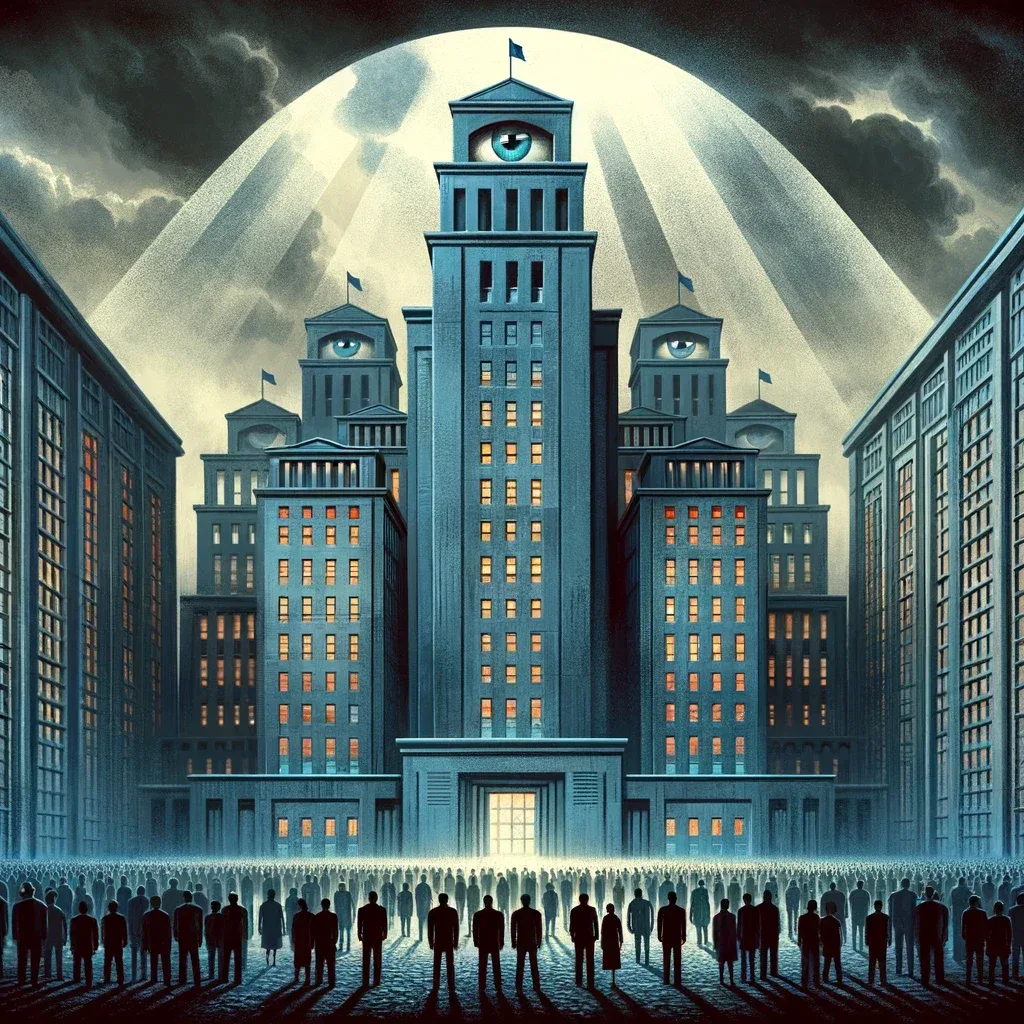
Origins of Totalitarianism
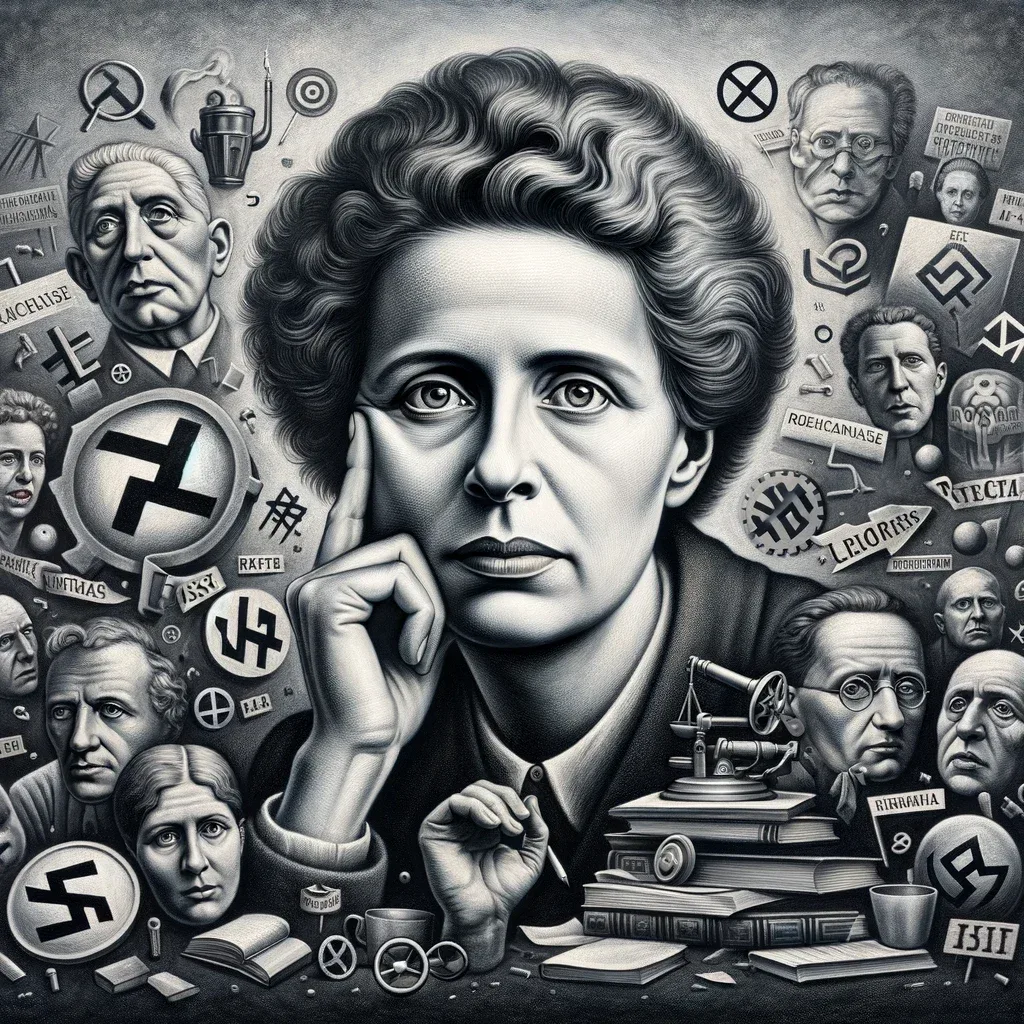
Rise of Totalitarianism in the XNUMXth Century
Arendt analyzes the emergence of totalitarianism in the context of the great political and social turmoil of the XNUMXth century, focusing particularly on the Nazi and Stalinist regimes.
Ideological and Social Roots
She explores the ideological and social roots of totalitarianism, linking it to the collapse of traditional power structures and the spread of extremist ideologies.
The Role of Propaganda and Manipulation
Arendt highlights the use of propaganda and manipulation as essential tools for the rise of totalitarian regimes, emphasizing how they shape reality to control the population.
Characteristics of Totalitarianism
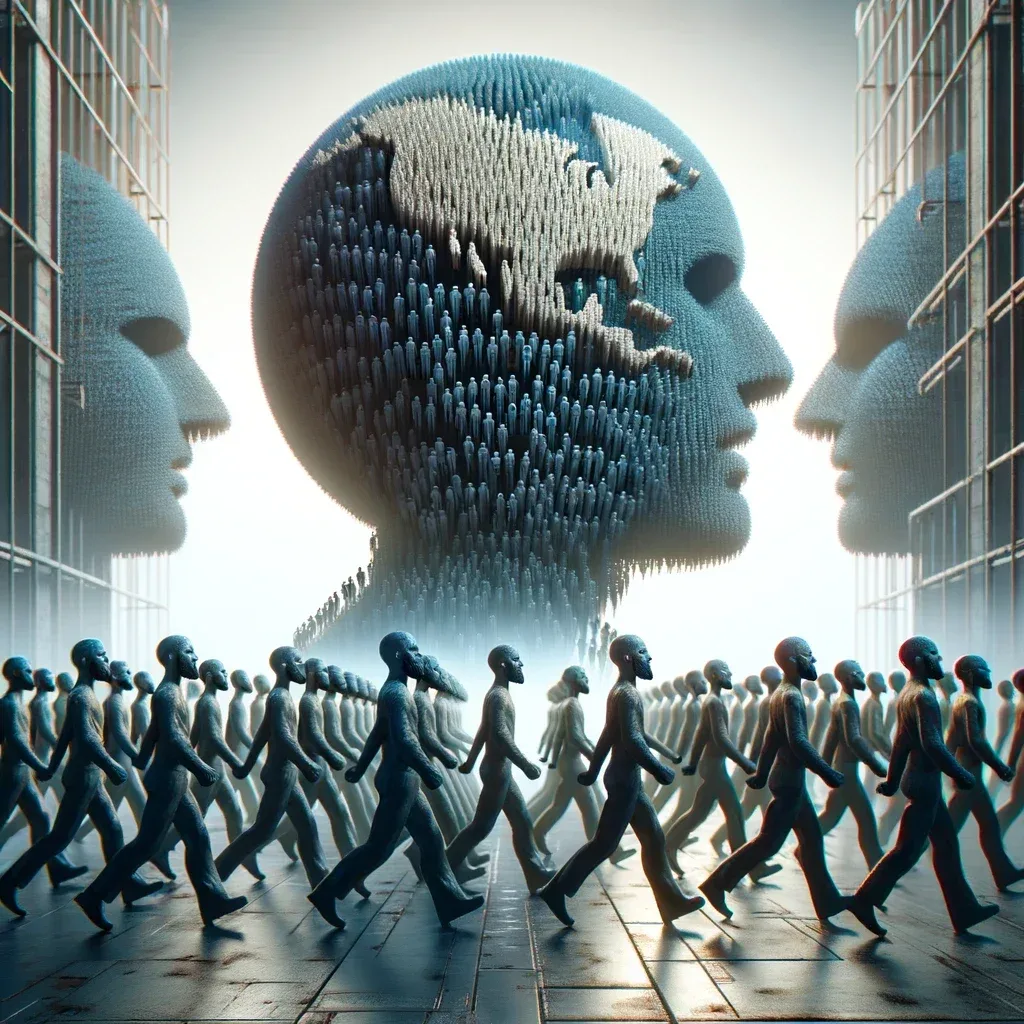
Centralization of Power and Control
Totalitarianism, according to Arendt, is marked by the extreme centralization of power and absolute control over individual and social life.
Destruction of the Public and Private Sphere
Arendt observes the erosion of the public and private spheres under totalitarian regimes, leading to the loss of individual freedoms and total submission to the state.
Terror as a Tool of Government
Terror is a fundamental characteristic of totalitarianism for Arendt, being used to ensure obedience and eliminate any form of resistance or dissent.
Implications of Totalitarianism

Impact on Identity and Individual Freedom
Arendt analyzes how totalitarianism profoundly affects individual identity and freedom, transforming citizens into mere objects of state power.
Consequences for Democracy and Society
She discusses the consequences of totalitarian regimes for democracy and society in general, warning about the dangers of apathy and conformity.
Legacy and Lessons for the Future
Arendt leaves a legacy of warning and reflection on totalitarianism, providing important lessons for preventing future authoritarian regimes.
Contemporary Relevance
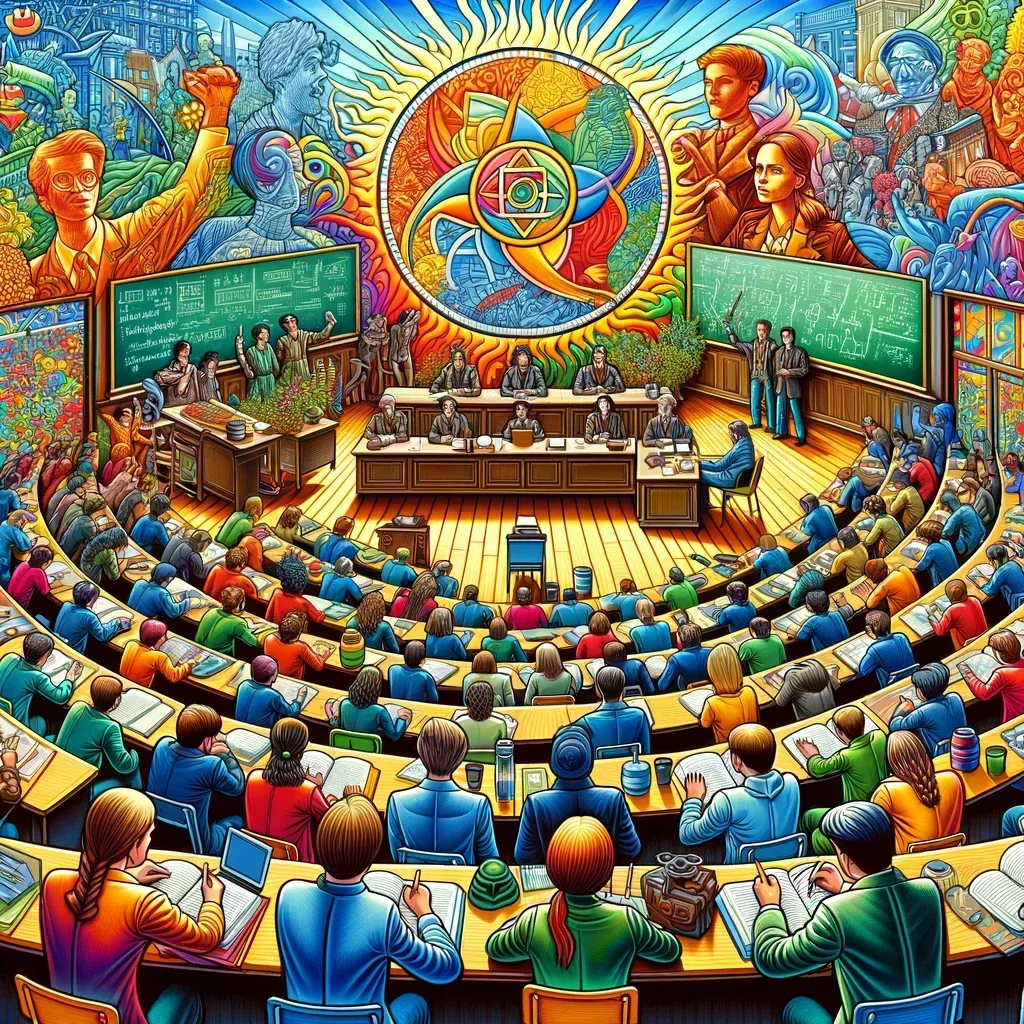
Totalitarianism in the Modern Context
We explore the application of Arendt's theories to the modern political landscape, analyzing how her ideas can be used to understand current challenges.
Technological Surveillance and Control
We discuss how modern technological surveillance may reflect some of Arendt's concerns about control and manipulation in totalitarian regimes.
Education and Awareness
Arendt emphasizes the importance of education and political awareness as antidotes to totalitarianism, a message still relevant today.
Conclusion
Hannah Arendt offers a deep understanding of totalitarianism, its roots, characteristics, and devastating impacts. Her work continues to be a crucial source of insight and guidance on how to confront and prevent the emergence of totalitarian regimes in the contemporary world.
Frequently Asked Questions about “Totalitarianism according to philosopher Hannah Arendt”
This FAQ seeks to clarify common doubts about Hannah Arendt's interpretation of totalitarianism, a complex and highly relevant topic.
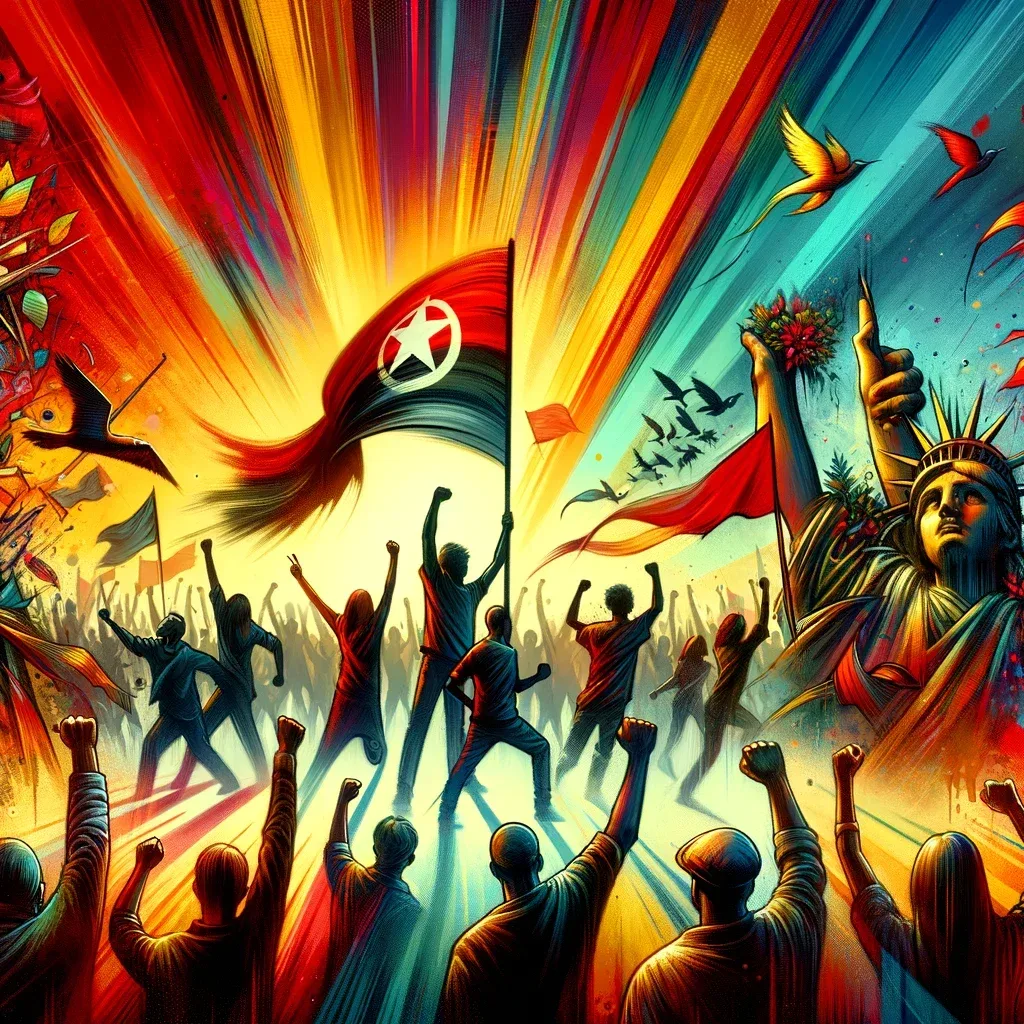
1. How does Hannah Arendt define totalitarianism?
2. What are the ideological roots of totalitarianism, according to Arendt?
3. What is the role of propaganda in totalitarian regimes?
4. How does totalitarianism affect individual freedom?
5. What is Arendt's view of terror in totalitarian regimes?
6. How does Arendt relate totalitarianism and democracy?
7. What are the implications of totalitarianism for society?
8. What is Hannah Arendt's legacy in the study of totalitarianism?
9. How is Arendt's thought relevant in the modern political context?
10. What is the importance of education and political awareness according to Arendt?
This FAQ aims to provide an in-depth understanding of Hannah Arendt's views on totalitarianism, covering key aspects of her analysis and application in the modern world.





